_________________________________________________________________________
Content Objective:
Understand the rights and responsibilities of U.S. citizenship and how citizens can influence all levels of government.
Language Objectives:
- Understand, learn, and use new vocabulary that is introduced and taught directly through informational text and direct instruction.
- Identify and/or summarize main ideas, facts, supporting details, and opinions in an informational and/or practical selection.
- Read and synthesize information found in various parts of charts, tables, or diagrams to reach supported conclusions.
Learning Target:
Students will explain how government policies and decisions have been influenced and changed by individuals, groups, and international organizations.
_________________________________________________________________________
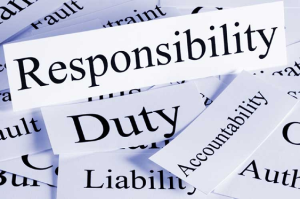
- Obey laws
- Pay taxes
- Serve in the military, if called
- Serve on a jury or witness in court when summoned
- Register to vote
- Keep informed of current issues
- Respect other people’s right to an equal voice and opinion in government
United States Citizen
Civic duties are actions that citizens must take to avoid legal repercussions. Obeying the law, serving on juries, paying taxes, attending school, and upholding the law as well as defending the United States are all examples.
Civic responsibilities are actions that citizens should do to create a better society, but are not required to. Examples include voting, voicing one’s opinion, community service, and having respect for those who may be different.
_________________________________________________
Civic participation is essential in a democracy. Citizens who get involved in civic and community groups help to strengthen civil society. At the same time, they tend to become more engaged in the political process. Most people fall into one of four broad categories of civic engagement.
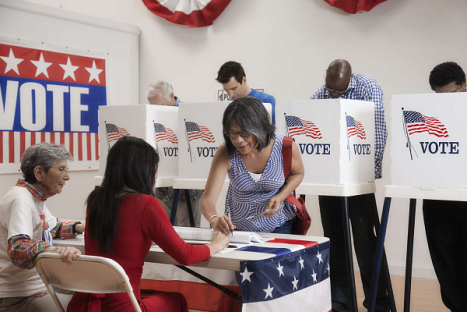
Electoral specialists are those whose main engagement is through the election process. People in this group vote, volunteer in political campaigns, and try to persuade others to vote as well.
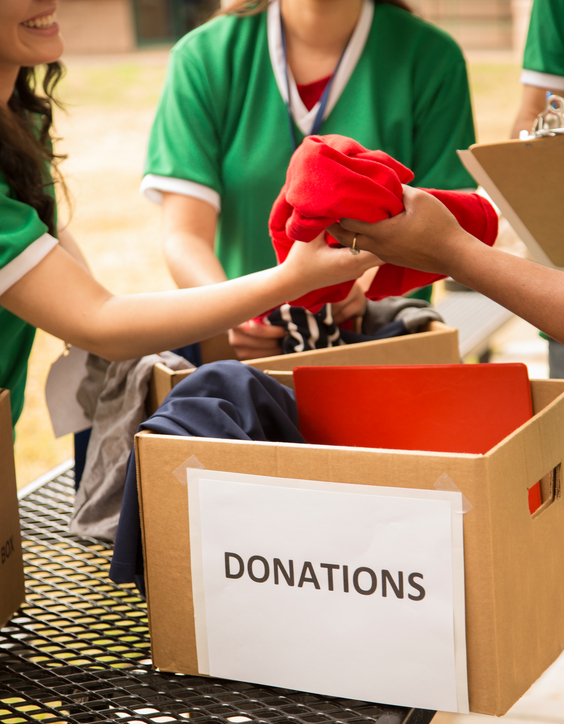
Civic specialists focus on improving their communities and helping others. They join local civic groups, support nonprofit organizations, and take part in fundraising activities for worthy causes.
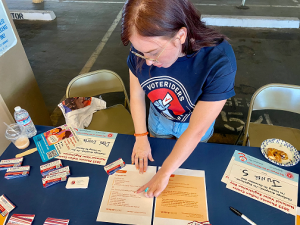
Volunteer at Indigenous Voter Registration event
Dual activists are made up of people who engage in both electoral and civic activities. They may be found passing out leaflets in a political campaign one day and volunteering in a shelter the next.
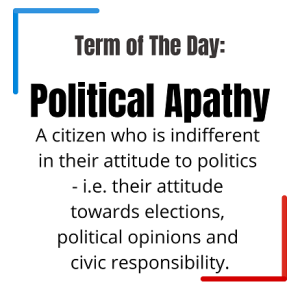
The disengaged is made up of people who are not significantly engaged in civic life. They don’t vote or pay attention to civic affairs.
_________________________________________________
How Americans Civically Engage
For most Americans, voting is the first thing that comes to mind when they hear the words civic duty. Voting is one of the most basic and important ways to engage in civic life.
There are many ways to be an active citizen. You can read newspapers or watch the news on television to stay informed about current events. You can talk to friends about political issues or put a bumper sticker on your car to demonstrate your support. You can become a volunteer with a community group or follow a political figure using social media. By doing any of these things, you are engaging in civic life.
_________________________________________________
Civic engagement takes many forms:
- writing a press release
- writing a letter to the editor
- communicating with a public official
- organizing a letter writing campaign
- testifying before a public body
- creating an issue ad or web site
- giving an interview or speech
- writing and circulating a petition
- creating and conducting an opinion survey
- joining a campaign or interest group
- organizing a fundraiser
- sponsoring a ballot initiative or referendum
- organizing a protest or boycott
- running for public office
- starting an interest group
_____________________________________________________________________________________________

Get in the habit of reading/watching the news.
News & Current Events is an integral component to studying and applying the fundamentals of United States government and the political system. The idea is to afford you the opportunity to follow important events and issues arising in the United States and provide commentary and insight, making connections to Government class content.
Ways to follow current events:
- Watch an evening network news program. Local news is great for weather, sports, and local soft stories, but they do not cover politics and governmental events like the networks do.
- Read the Washington Post or the New York Times. Read the editorial and opinion section as well as letters to the editors.
- Read the front page section of http://www.msn.com, http://www.cnn.com, or http://www.nytimes.com.
- Watch C-SPAN and CSPAN-2 for coverage of the House of Representatives and the Senate. In addition, there are excellent evening and Sunday programs on the Supreme Court and the White House.
- Read weekly news magazines such as Time, Newsweek, or U.S. News and World Report.
- Listen to a radio talk show. There are numerous programs and hosts available to choose from.
_____________________________________________________________________________________________
Disclaimer
The views and opinions expressed here are those of the students and speakers of our government classes and do not necessarily reflect the views or positions of this website, institution, or organization. Any views or opinions are not intended to malign any religion, ethnic group, club, organization, company, or individual.
Filed under: civic duty and responsibility, government |


